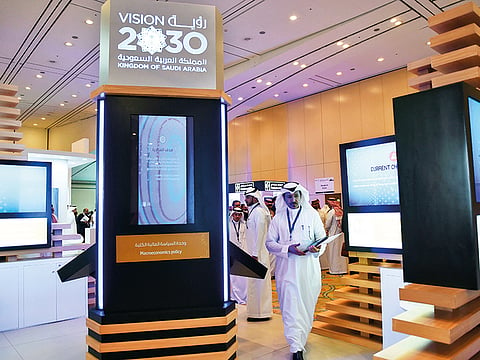Bids submitted to advise on privatisation of 55 Saudi health care centres
Government will decide within the next 45 days on the bids

RIYADH
Saudi Arabia’s Ministry of Health has received at least six bids to act as financial adviser for the privatisation of 55 primary health care centres in Riyadh, banking sources said.
The privatisation, which is expected to run into billions of riyals, is part of the government’s plan to ease the strain on state coffers from low oil prices by placing industries ranging from health care to airports in private hands.
Albilad Capital, NCB Capital, Gulf International Bank Capital, KPMG, PricewaterhouseCoopers and Banque Saudi Fransi all submitted bids by the deadline of April 26 to act as financial adviser for the programme, the sources said.
Each bidder is teaming up with a technical adviser for the project, said one of the sources.
The Ministry of Health did not respond to a request for comment.
The government will decide within the next 45 days which of the bids it intends to proceed with, one of the sources said.
The government views health care as the sector with the best potential for privatisations and is studying whether to sell off all public hospitals and 200,000 pharmacies, Vice Minister for Economy and Planning Mohammad Al Tuwaijri told Reuters on April 27.
The kingdom faces rising medical expenses related to areas such as accidents, smoking and obesity. Health Minister Tawfiq Al Rabiah was quoted by Arab News on April 25 as estimating that medical costs would rise to about 250 billion riyals by 2030.
The news comes shortly after the Saudi Arabian government said on April 27 that it believes it can raise around $200 billion in the next several years by selling stakes in state enterprises ranging from hospitals to airports and grain silos.
Al Tuwaijri, a former Saudi Air Force pilot and former chief executive of HSBC’s Middle East operations, had said the $200 billion figure did not include tens of billions of dollars which the government expects to raise next year when it offers up to 5 per cent of national oil firm Saudi Aramco.
Enterprises in 16 sectors are expected to be fully or partly privatised by 2020. Al Tuwaijri conceded some deals would be difficult and complex, but said Riyadh would be flexible in choosing structures that buyers wanted, including public offers, private placements of shares and private equity deals.
He had said that among the first assets to be offered will be one of Saudi Arabia’s top hospitals, King Faisal Specialist Hospital and Research Centre in Riyadh.
“We are in a very advanced stage — appetite has been secured, the model is being made by relevant government authorities, and the rest is literally market-, funding- and finance-driven,” Al-Tuwaijri said of the hospital deal.
Sign up for the Daily Briefing
Get the latest news and updates straight to your inbox
